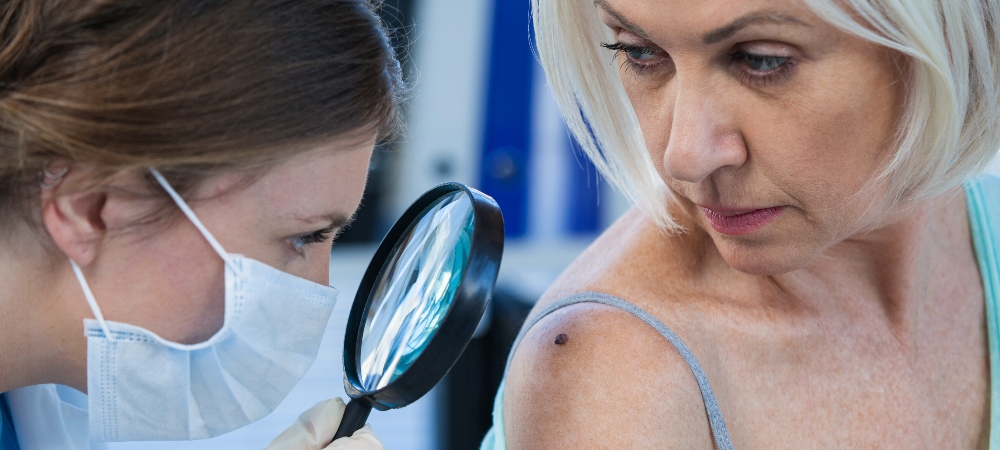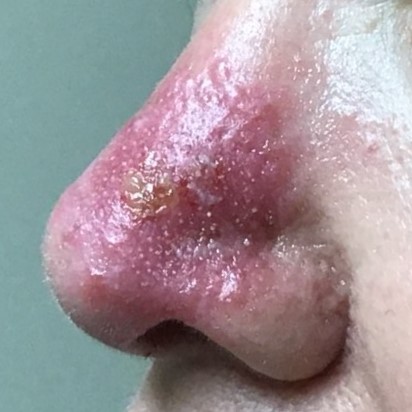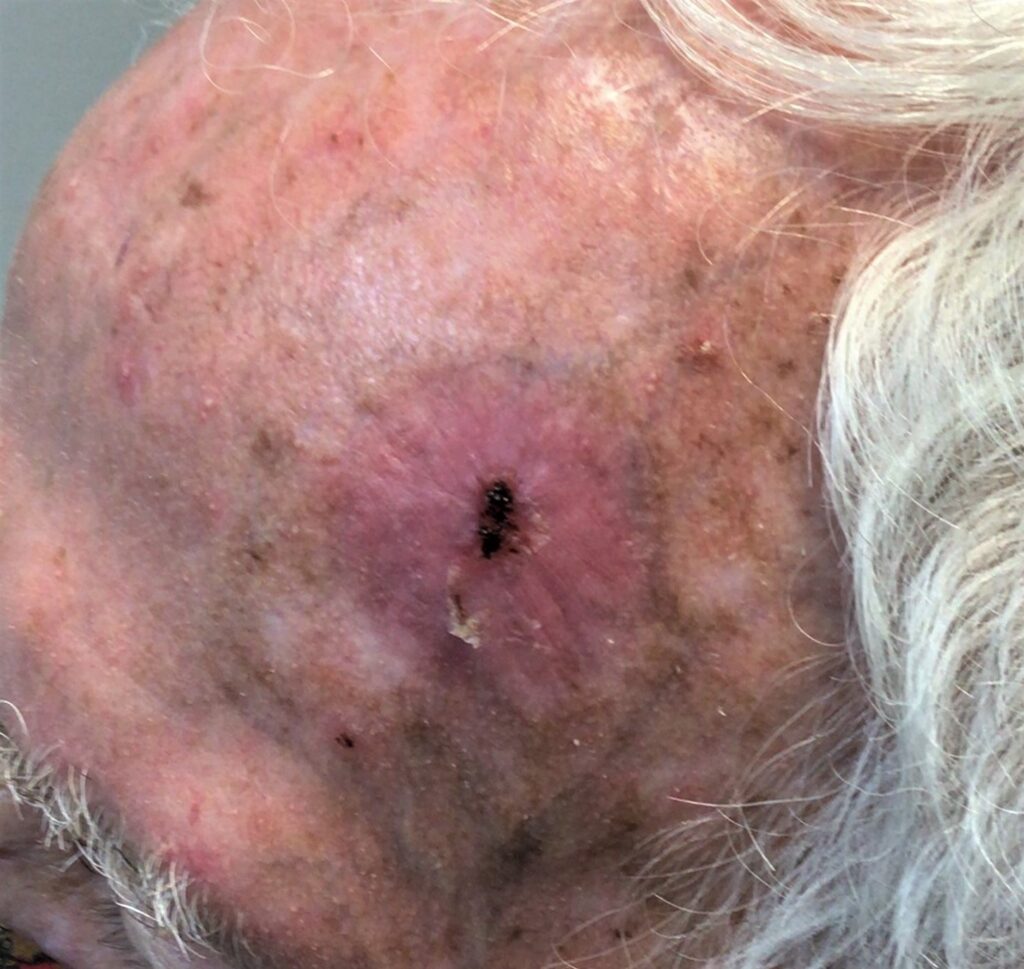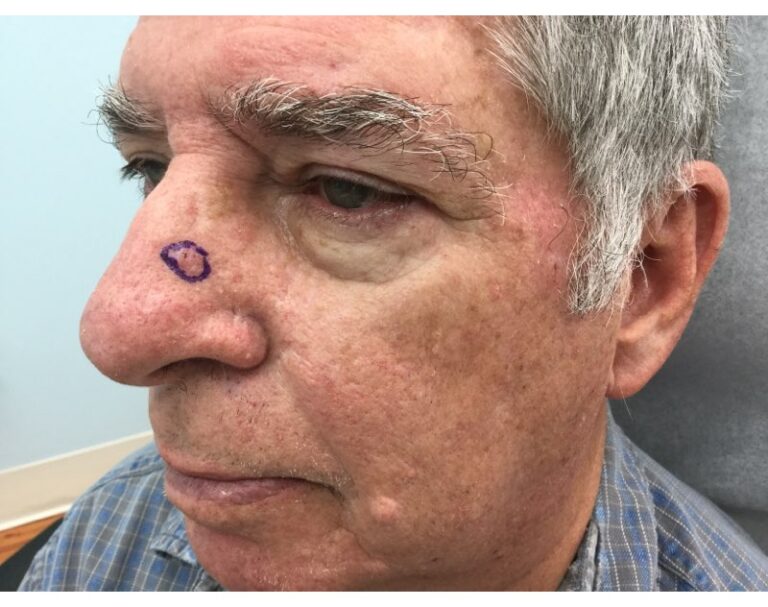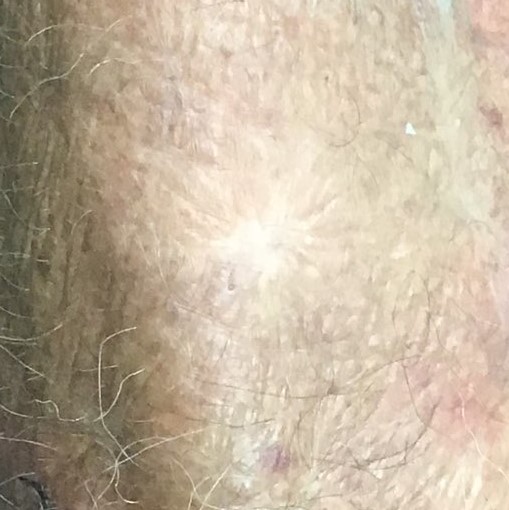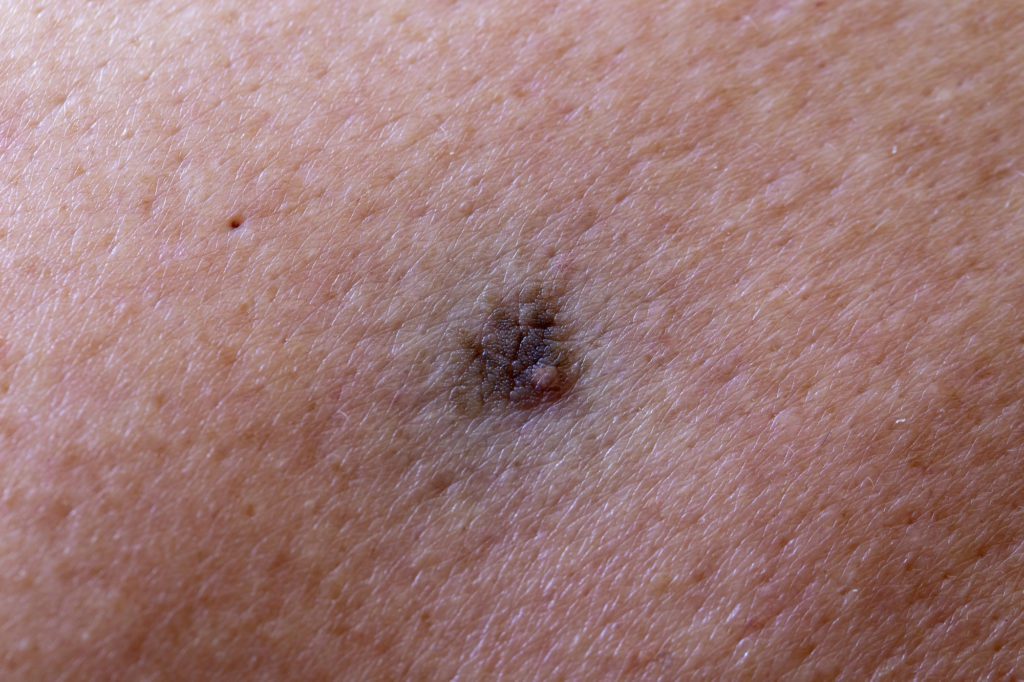
Even if you’re familiar with the risks and outcomes associated with skin cancer, you might still wonder, what does skin cancer do? Skin cancer is an abnormal growth of cells in the epidermis—the skin’s outer layer. It will eventually form malignant tumors, and may spread to other parts of the body if left untreated.
How Does Skin Cancer Progress?
We’ll take a closer look at why skin cancer develops later on, but for now, it’s enough to note that the disease is caused by DNA damage to your cells. This DNA damage changes the way that your cells reproduce, and if the damage becomes significant enough, it results in a situation where your cells start to grow uncontrollably.
What does skin cancer do from here? If the disease is not detected and treated early on, it continues to develop:
- Melanoma develops rapidly, and it can spread to other parts of the body and become life-threatening very quickly—in as little as six weeks.
- Basal cell skin cancer is less likely to spread, but over a long enough timeline, it too can spread to other healthy skin cells or pass into other organs.
- Like melanoma skin cancers, squamous cell skin cancer may spread to other parts of the body through the local lymph system. However, squamous cell skin cancer is not particularly fast-growing, so there is a lower risk.
What does skin cancer do if the disease is not treated? In the worst cases, skin cancer will spread to other parts of the body, where it will form malignant tumors in important organs, blood vessels, or nerve clusters. In this way, the disease becomes life-threatening. However, it may have an impact on your daily life even if the disease never progresses this far.
Why Does Skin Cancer Develop?
Skin cancer is most likely to develop from UV radiation caused by the sun: up to 90% of common skin cancers and up to 86% of melanoma skin cancers are due to excessive short- and long-term exposure to UV radiation. Skin cancer statistics also show that other sources of UV light—like tanning beds—are at least as dangerous as sun exposure.
However, not all skin cancers are the result of sun exposure alone. For example, although Merkel cell carcinoma generally develops on the sun-exposed areas of fair-skinned people, it is usually associated with a virus called the Merkel cell polyomavirus. There are also many different risk factors for skin cancer that need to be kept in mind. Even so, limiting your sun exposure and taking steps to prevent excessive UV radiation are both effective ways of reducing your likelihood of skin cancer.
Treat Common Skin Cancers with GentleCure
When caught early on, skin cancer can often be eliminated in its entirety. For common skin cancers, GentleCure™ (which utilizes Image-Guided SRT) is often a viable alternative to Mohs surgery. If you’d like to learn more about GentleCure, ask your doctor if it’s right for you.

